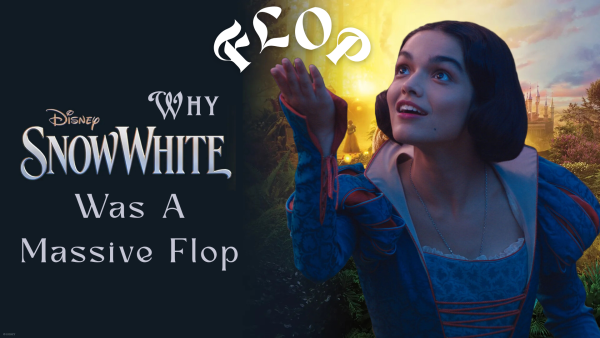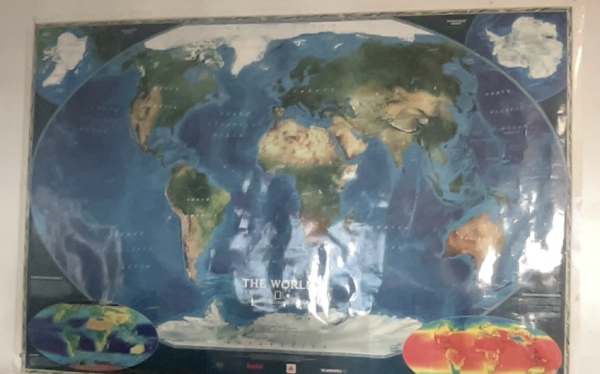The strange and underrated stories of the SCP Wiki
The SCP Wiki is extremely difficult to succinctly define. Let’s start with the basics: https://scp-wiki.wikidot.com/ is a Wikidot page that houses at the time of writing over 8000 original short stories. Each is written by a member of the SCP community, and anyone can write and upload their own original story for everyone to read. Initially, the community focused on horror and sci-fi, but over its long history, the site has branched out to include pretty much everything, from fantasy to comedy to meditative philosophy.
That’s the easy version. But If you were to load up the site without any other knowledge and get reading, you would probably be immediately confused. This is because the first thing you have to know about SCP, between the stories, discourse, artwork, and short films, is that you need a lot of context. We’ve arrived at the core of what makes SCP so special: each piece of it takes place in the endlessly interesting and unique SCP universe.
The “SCP Universe” is a fictional reality that blends two opposites: sterile science and mind-bending magic. In it, a massive shadow organization called the SCP Foundation has the mission of securing, containing, and protecting “anomalies”. An anomaly is anything that violates natural law – most well-known are the various and eerie cryptids that haunt the SCP Universe – statues that only move when you look away, a ghastly old man that can walk through walls, a massive humanoid that does everything it can to kill anyone who knows what it looks like. Monsters typically found in stories of isolation and mystery appear in scientific and analytical settings instead, making for an extremely interesting and unique brand of horror. These are the foundational pieces and characters that started the community, but lesser-known pieces might feature anomalies more complex – a group of reality benders who weaponize memory to achieve a mysterious goal, an alien race that seeks refuge after a devastating apocalypse, a snowstorm that has the ability to restructure reality. The Foundation is professional and impersonal, and aims to hide these anomalies from the public while preventing the dangerous ones from hurting people.
The most common contribution to the SCP community is the SCP article. It is an in-universe document that focuses on one anomaly and explores it, most often describing how the Foundation contains it, does tests on it, and so on. These articles might be less than a page or the size of novellas.
So that’s it, right? SCP stands for Secure, Contain, Protect, meaning that the SCP foundation is an organization that aims to hide away the supernatural to maintain normality with the general population. The user-submitted stories in the Wiki focus on a scientific approach to writing stories about supernatural happenings. Anyone can contribute to this universe by writing an in-universe document describing an original anomaly. Well, sure, that’s true. But the second thing to know about SCP is that it never ends. Because, my previous definition would neglect to mention the endless podcasts, “001 Proposals,” the deeper lore behind the origin of the Foundation, how “personal cannons” work, recurring characters such as Dr. Bright, Joke SCPs, the actual structure of an SCP document, other organizations that exist within the universe such as “The Global Occult Coalition” and the “Chaos Insurgency,” Hume levels, object classes, antimemetics, tales, redacted information – there are few articles that don’t rely on prior information. Many articles, in fact, hinge completely on a reader’s prior knowledge of the universe.
I’ll give an example: One of my favorite articles on the Wiki is SCP-7676: The Grand Symphony of 1976. Great, I just gave you a recommendation, but if you are new to SCP, I would actively discourage you from starting there. Because before SCP-7676 can make sense, you have to first read SCP-4833, learn what “amnestics” are, learn what the “05 Council” is, familiarize yourself with the “Class of ‘76” storyline (yes, there are storylines that take place between articles), read SCP-2000, and so on. These aren’t supplemental works that can make the article better – the article is impossible to understand in its entirety without context. Articles aren’t just isolated short stories – each one contributes to the entire lore of the Wiki page.
The third thing to know about SCP is that there’s something for everyone here. It is undoubtedly a community hard to get started with. There’s so much, but all of it interweaves so thoroughly, it feels like there’s no defined beginning point.
It’s a learning curve – at first, reading an SCP document is nothing like reading a short story. But once you are more familiar, once it becomes easy to understand, SCP is some of the most fun you’ll ever have with fiction. Authors don’t need to spend time setting up the world – since readers understand the universe, the writer has all of the resources to dive in immediately with complex and deeply context-heavy stories. But simultaneously, the tools provided are so versatile, a writer can write literally any kind of story imaginable. There are thought experiments that are less than a page, and there are short stories with weight and humanity that are difficult to find in all of fiction. Or take something like the tale “The Ouroboros Cycle,” an infamous dive into the backstory and lore of the Foundation that is quite literally the length of a novel.
If you are looking for good SCPs to start with (note that these are according to my preferences, which lean towards more complicated stories):
- If you want an eerie tale with some twists:
- SCP-1000: Bigfoot
- SCP-3515: Unearth
- If you want a classic example of SCP horror:
- SCP-096: The Shy Guy
- SCP-087: The Stairwell
- If you want something more melancholy and thoughtful:
- SCP-3300: The Rain
- SCP-1762: Where the Dragons Went
If you were to read and fully understand all of these that I’ve given you, you still would only be touching the tip of the iceberg. So I encourage you: to explore on your own! Look around the Wiki page for random things that you find interesting, look up videos that explain the lore of the universe, listen to podcasts and watch short films – there is so much here, and a great deal of the joy is stumbling upon something unexpectedly fantastic.
It’s strange to rank something so wildly expansive and impossible to fully understand. But if I were to assign a rating, it would be 10/10.

DJ Nguyen is a junior with an interest in language and computer science. He is in his 2nd year with The Viking Press and is a brand new editor for the...






